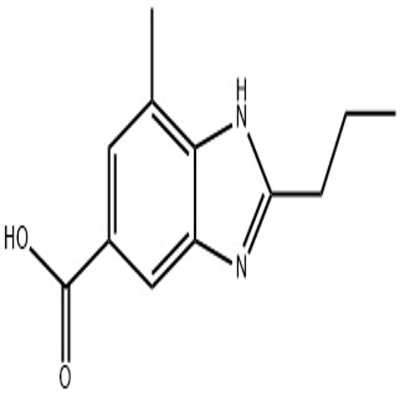-
Categories
-
Pharmaceutical Intermediates
-
Active Pharmaceutical Ingredients
-
Food Additives
- Industrial Coatings
- Agrochemicals
- Dyes and Pigments
- Surfactant
- Flavors and Fragrances
- Chemical Reagents
- Catalyst and Auxiliary
- Natural Products
- Inorganic Chemistry
-
Organic Chemistry
-
Biochemical Engineering
- Analytical Chemistry
-
Cosmetic Ingredient
- Water Treatment Chemical
-
Pharmaceutical Intermediates
Promotion
ECHEMI Mall
Wholesale
Weekly Price
Exhibition
News
-
Trade Service
2-Thiopheneacetic acid, ethyl ester is a chemical compound that has several applications in the chemical industry.
It is a derivative of thiophene, which is a type of aromatic hydrocarbon.
This compound is synthesized by the reaction of 2-thiophene with acetic acid in the presence of a strong acid catalyst, such as sulfuric acid.
The ethyl ester derivative is formed by the reaction of 2-thiopheneacetic acid with ethyl alcohol.
One of the most common applications of 2-thiopheneacetic acid, ethyl ester is as a catalyst in the production of polyester fibers.
It is used in the manufacture of polyethylene terephthalate (PET), which is a type of polyester that is widely used in the production of plastic bottles and other packaging materials.
The catalyst helps to speed up the reaction of the monomers used in the production of PET, which results in a more efficient and cost-effective process.
Another application of 2-thiopheneacetic acid, ethyl ester is in the production of dyes and pigments.
It is used as a catalyst in the production of diazo dyes, which are used to produce a range of colors in textiles, plastics, and other materials.
The catalyst helps to speed up the reaction between the diazo compound and the coupler, which results in the formation of the final dye.
2-Thiopheneacetic acid, ethyl ester is also used in the production of pharmaceuticals.
It is a precursor in the synthesis of some drugs, such as antibiotics and anti-inflammatory drugs.
It is used as a building block in the synthesis of these drugs, and its unique chemical properties make it an ideal choice for this purpose.
The compound is also used in the production of plastics and other synthetic materials.
It is used as a catalyst in the production of polycarbonates, which are used in the production of plastic products such as bottles and medical devices.
It is also used in the production of polyurethanes, which are used in the production of foam insulation, furniture, and automotive components.
2-Thiopheneacetic acid, ethyl ester is also used in the production of agrochemicals, such as pesticides and herbicides.
It is used as a catalyst in the production of these chemicals, which helps to speed up the reaction between the active ingredients and the carrier materials.
This results in a more efficient and cost-effective production process.
In addition to its applications in the chemical industry, 2-thiopheneacetic acid, ethyl ester has also shown potential as a catalyst in the production of biofuels.
It has been used in the production of biodiesel, which is derived from vegetable oils and can be used as a replacement for fossil fuels.
Its use as a catalyst in this process can help to speed up the reaction and increase the efficiency of the process.
Overall, 2-thiopheneacetic acid, ethyl ester is a versatile compound that has a wide range of applications in the chemical industry.
Its unique chemical properties make it an ideal choice for use as a catalyst in the production of polyesters, dyes, pharmaceuticals, plastics, and other materials.
Its potential as a catalyst in the production of biofuels also suggests that it may play an important role in the development of sustainable energy sources for the future.





![benzyl N-{2-[4-(4,4,5,5-tetramethyl-1,3,2-dioxaborolan-2-yl)phenyl]ethyl}carbamate](https://file.echemi.com/fileManage/upload/goodpicture/20210823/m20210823171124543.jpg)

